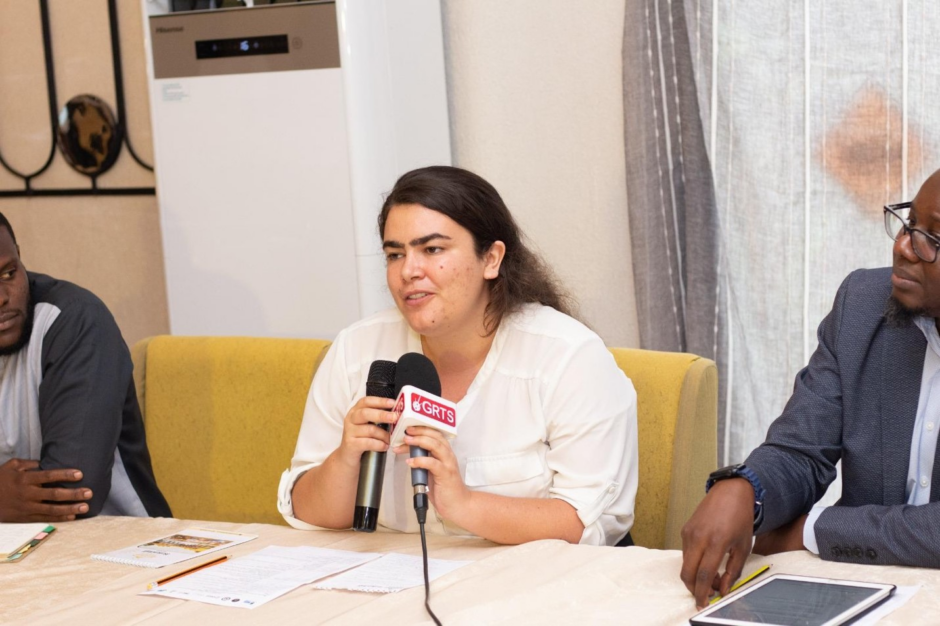
A mass grave in the compound of the St. Peter’s Lutheran Church in Monrovia. Credit: Anthony Stephens/New Narratives.
Lawyers for victims of the 1990 St. Peter’s Lutheran Church massacre by Armed Forces of Liberia troops under the rule of then-president Samuel Doe, have described this month’s ruling by the Ecowas Community Court of Justice against their clients as “disappointing.” The court said it had no jurisdiction to look in the merits of the case against the Liberian government because the slaughter of an estimated 600 men, women and children, predated the court’s establishment in 2005. The ruling dashed the hopes of victims and survivors of the carnage during Liberia’s first civil war.
The Armed Forces of Liberia and the Special Anti-Terrorist Unit (Satu), allegedly killed the people because they were said to be members of the Gio and Mano ethnic groups, who Doe had accused of supporting Doe. The court’s ruling shocked survivors and families of the victims.
“The Court’s decision, declining jurisdiction because the ECOWAS mechanism for individuals to enforce their rights was only established in 2005 ignores that Liberia had voluntarily undertaken an international legal obligation to respect and protect these rights by 1990,” said Lindsay Bailey, Staff Attorney of the Center for Justice and Accountability (CJA), a California based victims’ rights group in a WhatsApp message. CJA worked with US law firm Debevoise & Plimpton and Liberian justice activists, Global Justice and Research Project to file the suit against the Liberian government, hopping to force it to act in the case.
The lawyers argued the government does not need to wait for a war crimes court and has a duty to use domestic laws to try accused perpetrators, including Moses Thomas, Satu commander on the day, who was found liable for the massacre in a civil case in Philadelphia in 2022 and ordered to pay $84 million to four victims who brought the case against him. Philadelphia prosecutors were unable to bring a criminal immigration fraud case against Thomas as they had against other accused perpetrators in Liberia. Thomas fled Philadelphia and returned to Liberia shortly after to escape enforcement of the liable payment.
“This disappointing decision disregards the true extent of Liberia’s obligations and unnecessarily limits the ability of survivors of atrocity to vindicate their rights,” said Ms. Bailey. Lawyers for victims’ families and survivors accused successive Liberian governments of “dereliction of duty” by failing to investigate and ensure the prosecution of accused perpetrators of the killings.
“International law requires that States investigate and prosecute human rights violations, and the failure to do so constitutes a continuing violation of human rights,” said Ms. Bailey. “Liberia’s obligation to protect the right to life was well-established under international law, including the African Charter, long before the Massacre took place in 1990. Liberia’s failure to investigate and prosecute perpetrators of the Massacre is an ongoing violation of the right to life that harms our clients today.”

Ms. Lindsay Bailey, a Staff Attorney of the Center for Justice and Accountability, which represented victims and survivors of the St. Peter’s Lutheran Church massacre in the recent suit against the Liberian government at the Ecowas Court. Credit: Bailey.
Some of the most gruesome killings of Liberia’s two civil wars, which officially ended more than two decades ago, happened during the massacre. Thirty-four years on, victims and survivors continue to cry for justice. Some carry visible scars from the brutal massacre which was conducted with machetes as well as guns. More than 75 survivors live with debilitating wounds and need critical medical attention, according to the Lutheran Massacre and Survivors Association, a victims’ and survivors’ group.
“We are very frustrated,” said Marcus Quoigoah, Executive Director of the association of the Ecowas court’s ruling. “We feel this is a slap to our faces. We didn’t think that would have happened. It’s beyond our imagination. But we are not deterred. We are not going to rest. We are going to seek any other legal means to ensure that Moses Thomas and his likes are held accountable.”
To date, no one has been criminally held accountable for the mass murder.
This story was a collaboration with FrontPage Africa as part of the “Investigating Liberia” project with funding from the Swedish embassy in Liberia. The donor had no say in the story’s content.
